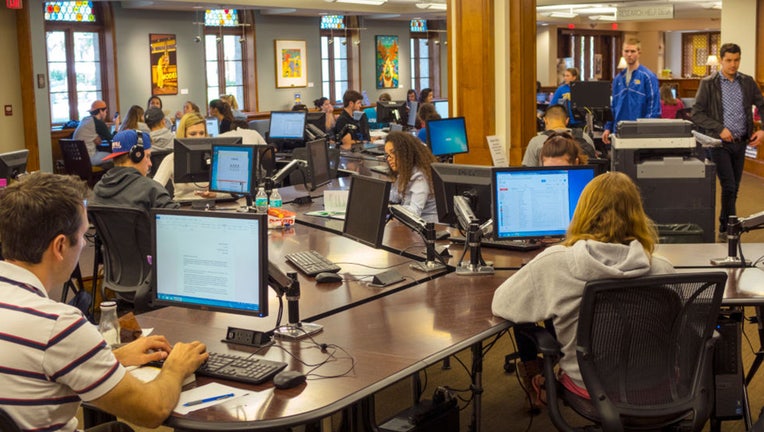
Scammers using AI to steal college financial aid: What we know
Published June 19, 2025 6:30pm MST
 article
article
FILE - Students studying at computer stations inside Olin Library. (Photo by: Jeffrey Greenberg/Universal Images Group via Getty Images)
The rise of artificial intelligence and the popularity of online classes have led to an explosion of financial aid fraud.
Scammers are enrolling into colleges as "ghost students" which are chatbots that join online classrooms and stay just long enough to collect a financial aid check.
Legitimate students get locked out of core classes needed to graduate due to these bots and the U.S. Education Department said it will introduce a temporary fix.
Millions lost to fraud
By the numbers:
Fraud reports from California colleges in 2024 found that 1.2 million fake applications were submitted.
This resulted in 223,000 suspected fake enrollments, according to an Associated Press analysis.
Scammers stole at least $11.1 trillion in federal, state and local financial aid from California community colleges last year and those funds couldn’t be recovered.
Local perspective:
Wayne Chaw began getting emails from De Anza Community College, located in Cupertino, California, in January.
Chaw was enrolled in coding classes a decade earlier.
Scammers got a hold of Chaw’s Social Security number and collected $1,395 in financial aid under his name.
The energy management class required students to submit a homework assignment to prove they were real. But someone wrote submissions impersonating Chaw, likely using a chatbot.
Why you should care:
Students who try to clear up the fraud are often met with no answer, leaving some to think they’ll be stuck with paying back any financial aid their fake counterparts might have cashed out.
Temporary rule
What you can do:
Earlier this month, the U.S. Education Department introduced a temporary rule requiring students to show colleges a government-issued ID to prove their identity. It will apply only to first-time applicants for federal student aid for the summer term, affecting some 125,000 borrowers. The agency said it is developing more advanced screening for the fall.
"The rate of fraud through stolen identities has reached a level that imperils the federal student aid program," the department said in its guidance to colleges.
The Source: Information for this article was taken from The Associated Press and the Federal Student Aid government website. This story was reported from Los Angeles.
